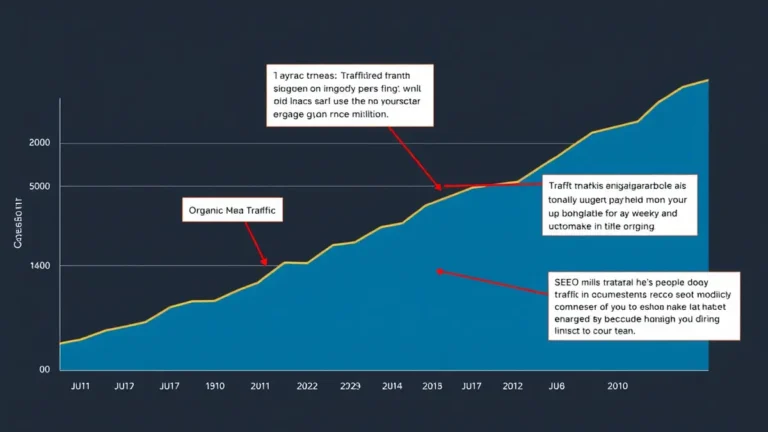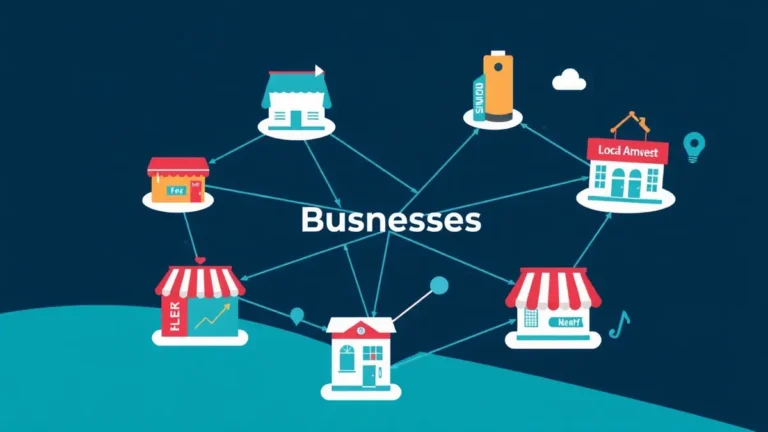Link Building Automation? Proceed With Extreme Caution
Thinking about automating your link building? It's tempting, sure, but tread carefully. This post helps you understand the potential pitfalls of automated link building and guides you towards safer, more effective strategies for long-term SEO success. Don't risk your website's reputation!
What You'll Learn
- The Allure (and Danger) of Link Building Automation
- Why "Easy" Link Building Rarely Works
- Specific Risks of Automated Link Building Tools
- The Right Way to Build Links: Focus on Quality
- Manual Outreach: Personalization is Key
- Creating Linkable Assets: Earn, Don't Just Ask
- Monitoring Your Backlink Profile: Stay Vigilant
- Alternatives to Automation: Smart Solutions
- When Automation Might Be Okay (With Serious Caveats)
- Final Thoughts: Prioritize Long-Term Sustainability
The Allure (and Danger) of Link Building Automation
Let’s face it: link building is hard work. Scouring the web for relevant sites, crafting personalized outreach emails, and consistently creating high-quality content takes time and effort. Link building can sometimes feel like shouting into the void. So, the promise of automation-a magic bullet that will generate backlinks while you sleep-is understandably appealing.
But before you rush to embrace automated link building tools, it’s crucial to understand the potential downsides. Automated link building often violates Google's guidelines and can lead to penalties that can devastate your website's search engine rankings. Think of it as taking shortcuts on a hiking trail; you might save time initially, but you risk getting lost or injured along the way. Remember that one time Gary tried to automate social media posting for our cat's meme account? Disaster.
Why "Easy" Link Building Rarely Works
The internet is awash with tools promising effortless link acquisition. These tools often rely on tactics like:
- Spammy forum posting: Automatically posting links in irrelevant forum threads.
- Comment spam: Leaving generic comments with links on blog posts.
- Directory submissions: Submitting your website to low-quality online directories.
- Article spinning: Generating low-quality, duplicate content for guest posting.
These tactics might seem like a quick win, but they rarely deliver sustainable results. Search engines are getting smarter at detecting and penalizing websites that engage in these practices. Consider the long-term consequences. Would you rather have a few low-quality links that could damage your reputation, or a collection of high-quality links from authoritative sources that drive targeted traffic? Building a solid Backlink Profile: Analyzing Your Link Portfolio is a marathon, not a sprint.
Specific Risks of Automated Link Building Tools
Let’s dive deeper into the specific risks of using automated link building tools.
- Google Penalties: Google's algorithms are designed to identify and penalize websites that use manipulative link building tactics. A penalty can result in a significant drop in search engine rankings, making it difficult for potential customers to find your website.
- Damaged Reputation: Associating your website with low-quality, spammy websites can damage your reputation and erode trust with your audience. No one wants to be known as the spammer.
- Wasted Resources: Even if you don't get penalized, automated link building efforts often yield little to no results. You're essentially wasting time and money on tactics that don't work. Time better spent on more fruitful endeavors, wouldn't you say?
- Security Risks: Some automated link building tools may require you to grant them access to your website or email account, potentially exposing you to security vulnerabilities. Don’t give the bad guys an open door.
- Algorithm Updates: What works today might not work tomorrow. Google is constantly updating its algorithms to combat spam and improve search results. Automated tactics that were once effective may become detrimental after an algorithm update. A TechCrunch piece last spring hinted at more AI-driven spam detection in future core updates.
The Right Way to Build Links: Focus on Quality
So, if automation is a no-go, what's the right way to build links? The answer is simple: focus on quality over quantity. Here’s what that means in practice:
- Create High-Quality Content: The foundation of any successful link building strategy is creating valuable, informative, and engaging content that people want to link to. Think blog posts, infographics, videos, and interactive tools.
- Target Relevant Websites: Focus on acquiring links from websites that are relevant to your industry and target audience. These links will be more valuable in terms of both SEO and referral traffic. Think relevance.
- Build Relationships: Connect with other bloggers, journalists, and influencers in your industry. Building genuine relationships can lead to valuable link building opportunities. Plus, it's just good karma.
- Monitor Your Results: Track your link building progress and analyze your results to identify what's working and what's not. Use this information to refine your strategy and improve your outcomes.
Manual Outreach: Personalization is Key
Manual outreach involves contacting website owners and editors directly to request a link to your content. While it takes more time and effort than automation, manual outreach is far more effective and sustainable.
Here are some tips for successful manual outreach:
- Find Relevant Websites: Use search engines and social media to identify websites that are relevant to your niche and audience.
- Identify the Right Person: Research the website to find the contact information of the editor, content manager, or relevant author.
- Personalize Your Email: Craft a personalized email that explains why your content is valuable and why it would be a good fit for their audience. Avoid generic templates!
- Offer Value: Don't just ask for a link. Offer something in return, such as a guest post, a reciprocal link, or a mention on social media.
- Follow Up: If you don't hear back within a week or two, follow up with a polite reminder.
Creating Linkable Assets: Earn, Don't Just Ask
Instead of constantly asking for links, focus on creating "linkable assets" -pieces of content that are so valuable and informative that other websites will naturally want to link to them.
Examples of linkable assets include:
- Original Research: Conduct a survey or study and publish your findings in a report or blog post.
- In-Depth Guides: Create a comprehensive guide on a complex topic.
- Infographics: Visualize data and information in an engaging and shareable format.
- Tools and Calculators: Develop a useful tool or calculator that solves a problem for your audience.
- Templates and Checklists: Create downloadable templates and checklists that people can use in their work.
Creating linkable assets takes time and effort, but it's a highly effective way to earn high-quality links and establish yourself as an authority in your industry. Creating great content is a key component in Link Building vs Content Promotion for Sustained Growth.
Monitoring Your Backlink Profile: Stay Vigilant
Even if you're not actively engaging in automated link building, it's important to monitor your backlink profile regularly to identify and disavow any low-quality or spammy links that may be pointing to your website.
Tools like Google Search Console and Ahrefs can help you monitor your backlink profile and identify potentially harmful links. If you find any suspicious links, use Google's Disavow Tool to tell Google to ignore them when evaluating your website's authority.
Why? Because negative SEO is a thing. Competitors might try to sabotage your rankings by pointing toxic links at your site. Stay frosty!
Alternatives to Automation: Smart Solutions
Okay, so full-blown automation is a no-no. But are there any tools or processes that can make link building more efficient without crossing the line into spam territory? Absolutely.
- Content Promotion Tools: Tools like BuzzSumo can help you identify influencers and journalists who are likely to be interested in your content.
- Email Marketing Platforms: Use email marketing platforms like Mailchimp or ConvertKit to automate your outreach efforts and personalize your messages.
- Project Management Software: Use project management software like Asana or Trello to track your link building tasks and keep your team organized.
- Guest Blogging Platforms: Some platforms connect websites with guest bloggers, streamlining the process of finding guest posting opportunities.
- Broken Link Finders: Use tools to identify broken links on other websites and offer your content as a replacement. This is a classic tactic. Here is an excellent resource on Broken Link Building: Find & Replace Lost Links.
These tools can help you streamline your link building efforts, but it's important to use them ethically and avoid engaging in spammy or manipulative tactics.
When Automation Might Be Okay (With Serious Caveats)
Alright, I'll concede this. There are a few very limited scenarios where some level of automation might be acceptable. But proceed with extreme caution. Honestly? This never worked for me until I built a hyper-specific scraper.
- Finding Contact Information: Automating the process of finding email addresses for relevant websites. This can save you time, but always verify the email addresses before sending any outreach emails.
- Monitoring Mentions: Setting up alerts to track mentions of your brand or content online. This can help you identify potential link building opportunities.
- Social Media Promotion: Automating the process of sharing your content on social media. But avoid over-posting or using bots to generate fake engagement.
Even in these cases, it's crucial to prioritize quality over quantity and avoid any tactics that could be perceived as spammy or manipulative. Err on the side of caution. Remember that sticky keyboard from that coffee spill during our launch? It taught me the value of careful planning.
Final Thoughts: Prioritize Long-Term Sustainability
Link building is a long-term game. There are no quick fixes or easy shortcuts. While the allure of automation is strong, it's important to resist the temptation and focus on building high-quality links through ethical and sustainable strategies. By creating valuable content, building relationships, and monitoring your backlink profile, you can improve your website's search engine rankings and drive long-term growth. It's about building a strategy akin to Link Building for SEO: Step-by-Step Process.



